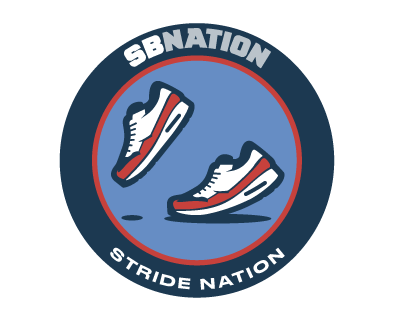When Donavan Brazier won last weekend’s NCAA Championship in the 800m in a U.S.-leading and NCAA-record time of 1:43.55, it seemed clear that he should compete in July’s Olympic Trials and, possibly, turn pro. However, it seemed at the time that Brazier had different ideas, saying that he might prefer to run World Juniors because it provided an easier path for him to represent the United States in international competition this summer. Along with that decision, it seemed that he would not turn pro.
That was the wrong course at the time, and indications are he has thought better of it. Yesterday, Dennis Young at Flotrack reported that Brazier had declared for the Olympic Trials and that he was likely to leave Texas A&M and begin his professional career.
Both of these decisions are the right ones for Brazier and come with the added benefit of track and field being more exciting for all of us this summer. As we’ve seen clearly in the cases of Mary Cain, Jordan Hasay, and Alan Webb, the young and marketable phenom of today can just as easily be tomorrow’s bust either due to injury or poor performance. At 19 years old it is certainly not likely that 2016 represents the last chance of Brazier’s career to make the Olympics. But, it’s unlikely he has more than 3 or 4 chances to make the Olympics in his life. You have to take the chances when they’re right there in front of you; to just throw one of them away would be a waste.
The same goes with turning professional. All athletes have a narrow window during which to make their career earnings, so it is essential for them to do all they can to maximize their earnings during that window. With his 1:43 performance at NCAA’s, Brazier’s earning window opened last weekend.
We don’t know much about the contracts of professional runners, but Boris Berian’s 3 year, $375,000 contract is certainly the floor of what Brazier could command. Brazier is over 4 years younger than Berian and has already run within a quarter second of his personal best, so it’s likely he stands to earn considerably more than Berian. Flotrack estimated over the weekend that he could stand to earn upwards of $2 million in his first contract. Those potential earnings are more likely to go down than up over the next two months, so it makes sense for him to cash in now while he can, especially since any contract would likely cover his college tuition. The only thing he stands to lose is a handful of NCAA championship trophies.
Looking forward to Eugene, Brazier should be considered a heavy favorite to make the U.S. team as he is likely to enter with the fastest time. Add in the possible—though unlikely—absence of Boris Berian and there is a strong argument that he is the favorite to win the Trials. It’s good to see that Brazier has made the right decision here. As an 800m runner, we know that, in the best case, he has very few opportunities to make money and go to the Olympics and, in the worst case, this represents his last opportunity. He’s done well to seize it while he can.
